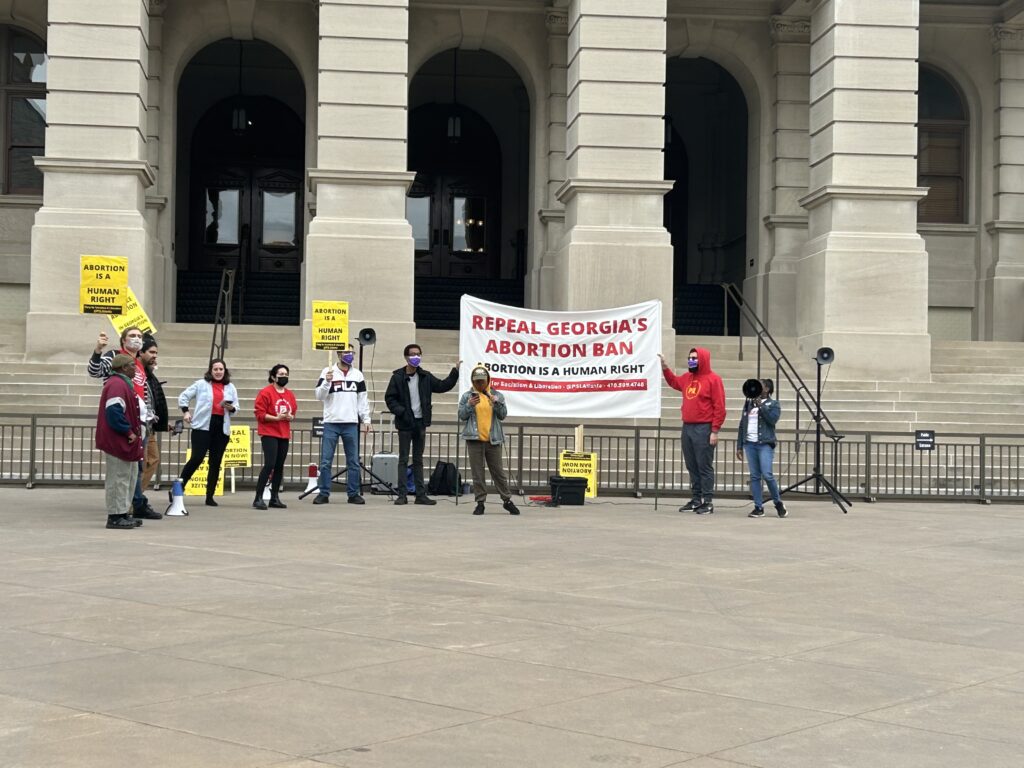
ATLANTA – The state Supreme Court heard arguments Tuesday in a case challenging a Georgia law banning most abortions after six weeks of pregnancy.
The General Assembly passed – and Gov. Brian Kemp signed – the LIFE Act (House Bill 481) in 2019. The law bans most abortions after a fetal heartbeat can be detected with exceptions in the case of rape, incest and medical emergencies.
Federal courts blocked the law from taking effect for several years. But after the U.S. Supreme Court eliminated the constitutional right to an abortion by overturning the 1973 Roe v. Wade decision last June, a federal judge allowed the Georgia law to take effect.
Opponents of the measure – led by reproductive rights group SisterSong – then took their fight to state court. Last November, Fulton County Superior Court Judge Robert McBurney ruled the Georgia law had been void from the start because it violated the U.S. Constitution as it stood in 2019, when Georgia’s abortion ban was enacted.
Republican state Attorney General Chris Carr and his team appealed that ruling, giving rise to the Georgia Supreme Court case heard on Tuesday. Soon after, the state Supreme Court ruled that the law could take effect in Georgia while litigation was pending, meaning that most abortions after six weeks are currently banned in Georgia.
“The LIFE Act engenders strong policy views, but there is nothing controversial or difficult about the legal question before this court, which is simply whether an erroneous, overruled judicial opinion can invalidate a state statute,” Stephen Petrany argued for the attorney general’s office.
“Because the LIFE Act would be valid if enacted today, under the exact same federal Constitution, it was valid when it was enacted [in 2019],” Petrany added.
In contrast, lawyers for the groups challenging the law countered that the law was void when the state legislature passed it and therefore should be deemed invalid, despite the subsequent U.S. Supreme Court decision overturning Roe v. Wade.
“When the legislature passes a law that is in violation of the Constitution, it is an overstep of their authority to do so,” Julia Stone argued.
“This is not a case where there was gray area … in 2019,” Stone added. “For 50 years, the rule was states could not ban abortions before the point of viability, and when the General Assembly passed HB 481 and sought to ban abortions … [that] had been perfectly clear for 50 years. [The state legislature] directly conflicted with that precedent.”
At a post-hearing press conference in front of the Supreme Court, Stone noted that if the law is struck down, Georgia lawmakers could enact another abortion ban but would have to do so in the new legal and political environment created by the overturning of Roe v. Wade.
The Supreme Court is likely to issue a decision in the case by this summer. The South Carolina Supreme Court in January found that state’s similar abortion law unconstitutional under state law.
This story is available through a news partnership with Capitol Beat News Service, a project of the Georgia Press Educational Foundation.